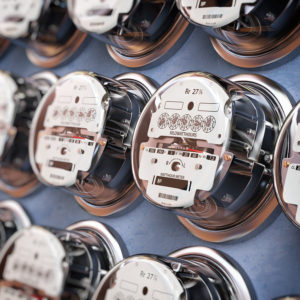The White House’s latest policy pronouncement has American energy producers struggling with the question, “What does Joe want?”
After weeks of pushing for more oil and gas production to fight higher gas prices and push back on Russian President Vladimir Putin’s invasion of Ukraine, the Biden administration has announced it is reinstating National Environmental Policy Act (NEPA) regulations, a move virtually guaranteed to make it harder to produce more energy.
“The administration’s NEPA rewrite adds more bureaucratic red tape into the permitting process, not only for natural gas and oil but for hydrogen, CCUS, wind, and solar,” said American Petroleum Institute (API) Senior Vice President of Policy, Economics and Regulatory Affairs Frank Macchiarola.
“So much for sticking it to Putin,” added Sterling Burnett, Director of Climate and Environmental Policy at the Heartland Institute.
Instead, energy insiders say, it is “sticking it” to northeastern states like New Hampshire, where a lack of pipelines and other energy infrastructure are costing ratepayers real money. Toby Rice, CEO of the natural gas giant EQT Corp., told The Wall Street Journal three large pipelines capable of transporting enough gas from Appalachia to serve more than 10 million households in the Northeast have been blocked. The result is imported LNG from abroad, higher prices, and more people still heating their homes by burning oil.
In the Granite State, more than 43 percent of households use heating oil. “It boggles my mind,” Rice said, also noting that natural-gas prices one weekend in January were eight times as high in New England as in Appalachia.
The New Hampshire Electric Cooperative (NHEC) recently announced the “Co-op Power portion of members’ bills will decrease from the current winter rate of 9.8 cents per kilowatt-hour (kWh) to 9.6 cents per kWh for the summer” that began May 1. That decrease is smaller than usual. Why?
“The Co-op Power Charge reduction for the summer period is not as low as we’ve seen in years past,” said Brian Callnan, NHEC’s Vice President of Power Resources & Access. “The primary driver is natural gas prices remaining high throughout the summer, which is the fuel used to generate nearly half of the electricity in New England.”
Asked via email if natural gas rates would be lower if there were increased local access to supply, NHEC spokesperson Seth Wheeler responded with one word: “Yes.”
Biden’s decision to re-regulate infrastructure development via NEPA isn’t going to help.
“Using the NEPA process, [federal] agencies evaluate the environmental and related social and economic effects of their proposed actions,” according to the Environmental Protection Agency. “Agencies also provide opportunities for public review and comment on those evaluations.”
Judicial rulings on the scope of NEPA had allowed the EPA to require a review of an infrastructure project — road, bridge, etc. — based on its “indirect” impact on climate, such as whether building a new road would encourage more driving and, therefore, more CO2 emissions. That level of review would have a disproportionate impact on new energy infrastructures like pipelines and refineries.
The Trump administration rolled back the “indirect” impact analysis and helped speed up the review process. Now the Biden administration has brought it back, requiring agencies to calculate the “indirect” and “cumulative impacts” that “can result from individually minor but collectively significant actions taking place over a period of time,” according to media reports.
The new Biden policy appears to be at odds with the White House’s stated agenda of increasing domestic energy production to both lower consumer costs and take leverage away from Russia in the global energy market.
“The Biden administration’s actions reversing key permitting reforms threaten to delay or derail critically necessary energy infrastructure projects, from natural gas pipelines to wind turbine installations,” said Marcellus Shale Coalition president Dave Callahan. “Investment decisions rely on a consistent and predictable regulatory environment, and continued ambiguity is a barrier to America realizing the economic, environmental and consumer benefits of abundant domestic natural gas.”
Leslie Fields, Sierra Club National Director of Policy, Advocacy, and Legal, disagrees.
“NEPA plays a critical role in keeping our communities and our environment healthy and safe, and Donald Trump’s attempts to weaken NEPA were clearly nothing more than a handout to corporate polluters,” Fields said. “We look forward to the coming Phase 2 rulemaking and encourage the White House Council on Environmental Quality (CEQ) to finalize the strongest NEPA regulations possible, as soon as possible.”
Kenny Stein, Director of Policy for American Energy Alliance (AEA), considers this is another example of the Biden administration talking out of both sides of its mouth.
“The administration claims it wants to bring down energy prices and repair and replace America’s infrastructure, but then it takes regulatory actions like this that will make all federal permitting or federally funded projects slower and more expensive,” said Stein.
The Heartland Institute’s Burnett says the return of more stringent NEPA reviews will impact the very infrastructure building the Biden administration celebrates.
“Road builders will have to account for the emissions from all the drivers that use the roads they construct in the future, none of which will have any measurable effect on the climate,” Burnett said. “Rather than “building back better,” these rules will virtually guarantee that almost nothing gets built at all.”





